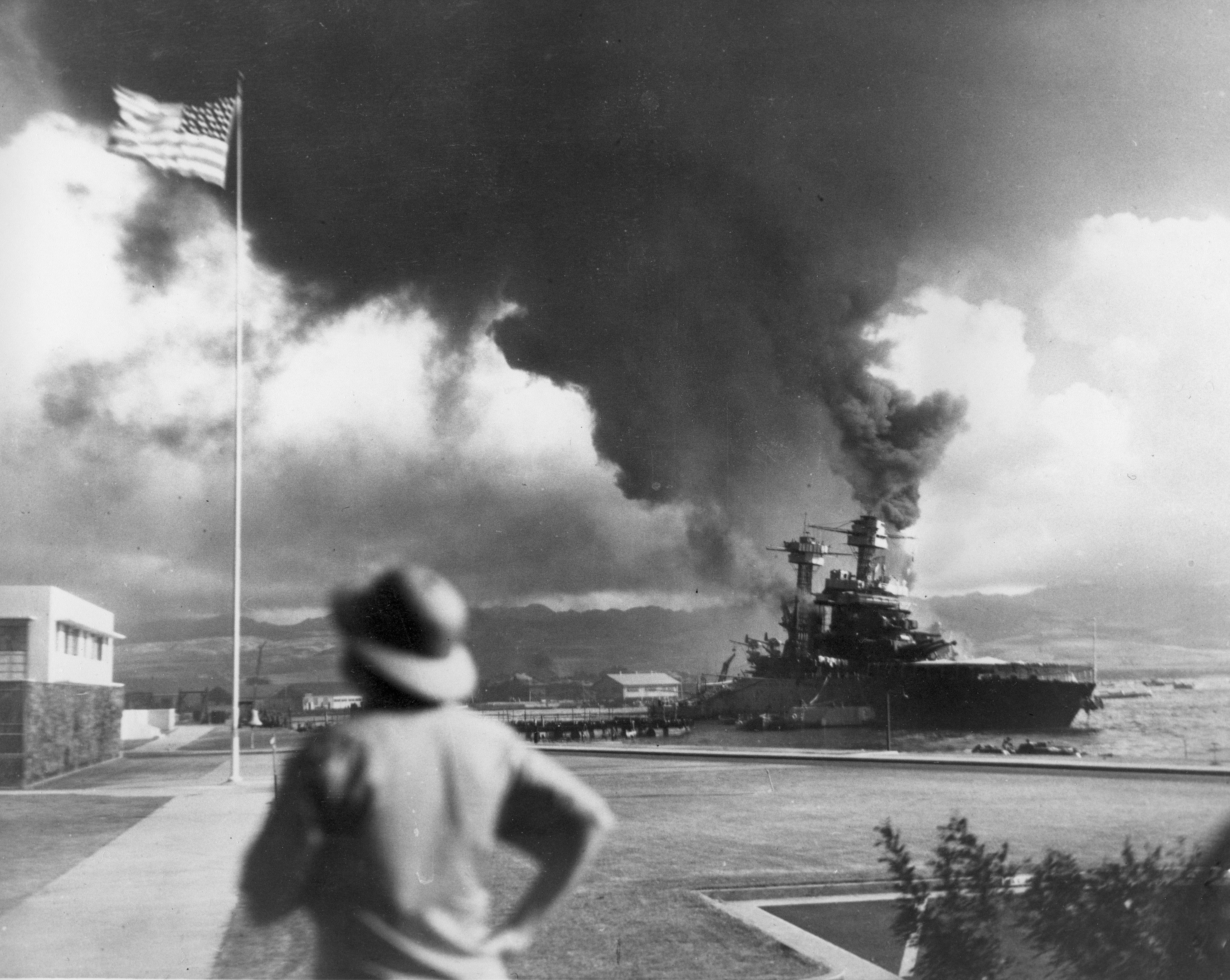An adage says time heals all wounds, but the wounds of the attack on Pearl Harbor on Dec. 7, 1941, were reopened with the most recent large-scale attack on the United States on Sept. 11, 2001, which happened nearly 60 years later.
Because of the similarities between the two events, especially in regard to the country's level of preparedness that preceded the attacks, the conspiracy theories that circulated around them and the patriotism that followed, the two incidents often become emotionally lumped together.
East Tennessee State University history professor Stephen Fritz said nearly as many Americans had conspiracy theories about the eagerness of President Franklin Delano Roosevelt's administration to engage the country in war with the Germans as the number of Americans who have conspiracy theories surrounding the attacks on the World Trade Centers.
"We don't like to think that these enormous consequential events happened by chance," Fritz said of people who hold conspiracy theories, going on to say that a lot of the time it helps people get through the catastrophic events.
A Gallup poll taken in late 1941 revealed that even though 52 percent of Americans believed the country would engage in war with Japan in the future, Roosevelt's focus was on Germany.
Because of Germany being the main target on the map, the attacks at the Pearl Harbor base in Hawaii at 7:48 that morning, brought on by 353 Japanese planes, caught the U.S. somewhat by surprise, Fritz said. What Japan accomplished was taking out 2,402 Americans. While this was a great loss for the base, and the country, Fritz said the attacks weren't successful in taking out U.S. aircraft carriers, which represented the Navy's real strength.
The U.S. declared war on Japan the day after the attacks, and to prove the lack of accomplishment at Pearl Harbor, just six months later at the Battle of Midway, off Australia, the U.S. was able to push back against Japanese forces and hand the country its worst defeat in 350 years.
Fritz said the death toll of so many Americans during the Pearl Harbor attacks doesn't show the losses were senseless, but shows the strength in which the U.S. was able to rebound. After Dec. 7, Fritz said there was a nationwide anxiety at the strength of Japan, and after the Battle of Midway, the population regained its confidence in the U.S.'s military power. The strong showing helped rally the same patriotism that swept the country nearly six decades later after the attacks on 9/11.
With a specialty in European history, Fritz said how interesting it is to look at Germany's intentions after Japan attacked. He noted Japan and Germany sought to accomplish different objectives while bringing the U.S. into World War II, and that Germany was hoping Japan's attack was stronger than it actually was, hoping for a much-weakened U.S. after the attack.
It wasn't as much of a strong offensive as it was an act of desperation, Fritz said of Japan's attack on Pearl Harbor. Because of the strict economic sanctions the U.S. had imposed upon the country, Japan felt an attack was the only way to temporarily debilitate the U.S. until it would loosen sanctions and resume a more-peaceful relationship. Many believed the maneuver was the start of an attack on the West Coast of the U.S., but Fritz said it was just an attempt to knock out the strong U.S. Navy until sanction deals could be made.
Fritz said many of the Pearl Harbor conspiracy theories were laid to rest with the attacks, though -- as it was said, if Roosevelt was looking to drum up support against Germany, being attacked by Japan just wouldn't fit into the logical equation.
State Sen. Dewey "Rusty" Crowe, R-Johnson City, said his uncle, Dewey, his namesake and a World War II pilot who flew P-38 planes, was killed in an effort around the Aleutian Islands, in which he collided with a fellow pilot with the 54th Squadron at the time of Pearl Harbor.
Crowe said that many people from the area volunteered their services to the country, and cared more about the freedoms of their countrymen than their own.
Deacon Bowers, of Elizabethton, a veteran of the Korean War, said his brother, Charles, served at Pearl Harbor. Bowers Carter County lost 155 men in combat during the war.
"It was a cruel war," Bowers said.

